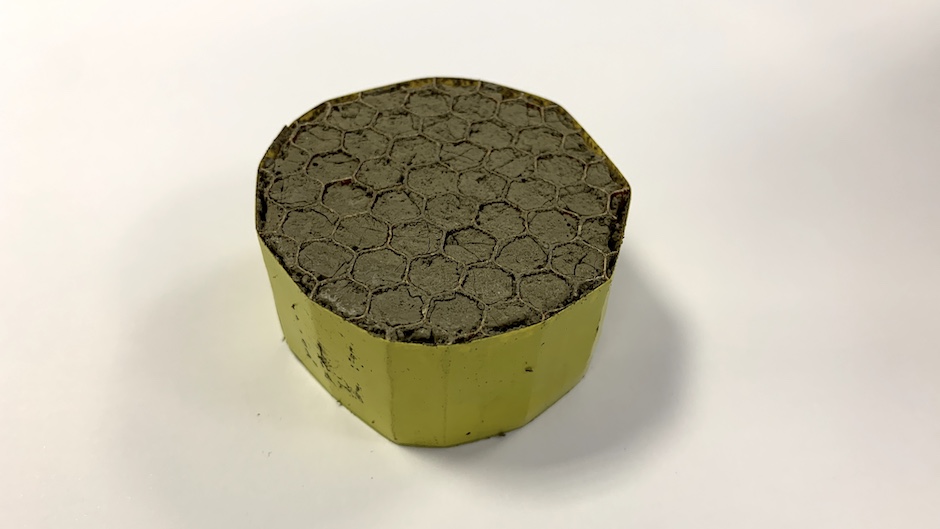
The graphene oxide-polyvinyl alcohol aerogel weighs 2.1kg per cubic metre, which is said to be the lightest sound insulation ever manufactured. The team believes that, when used as insulation within aircraft engines, noise could be reduced by up to 16 decibels. This would take the 105-decibel roar of a jet engine to a sound closer to that of a hair dryer.
With a ‘meringue-like’ structure, the extremely light material could act as an insulator within engine nacelles with almost no increase in overall weight according to researchers. The team is working on further optimising the material to offer improved heat dissipation, offering benefits to fuel efficiency and safety.
Researchers from Bath’s Materials and Structures Centre (MAST) have published a method for manufacturing the materials in the journal Nature Scientific Reports.
Graphene derived from discarded tyres used to strengthen concrete
Graphene shows support for fuel cell catalysts
“This is clearly a very exciting material that could be applied in a number of ways — initially in aerospace, but potentially in many other fields such as automotive and marine transport, as well as in building and construction,” said Professor Michele Meo, research leader.
Meo said that the team managed to produce such a low density by using a liquid combination of graphene oxide and a polymer, formed with whipped air bubbles and then freeze-casted.
“On a very basic level, the technique can be compared with whipping egg whites to create meringues — it’s solid but contains a lot of air, so there is no weight or efficiency penalty to achieve big improvements in comfort and noise,” Meo added.
Whilst the initial focus is on working with aerospace partners to test the material, the team said it could also be used to create panels in helicopters or car engines. Researchers estimate that the aerogel could be in use within 18 months.










McMurtry Spéirling defies gravity using fan downforce
Ground effect fans were banned from competitive motorsport from the end of the 1978 season following the introduction of Gordon Murray's Brabham...